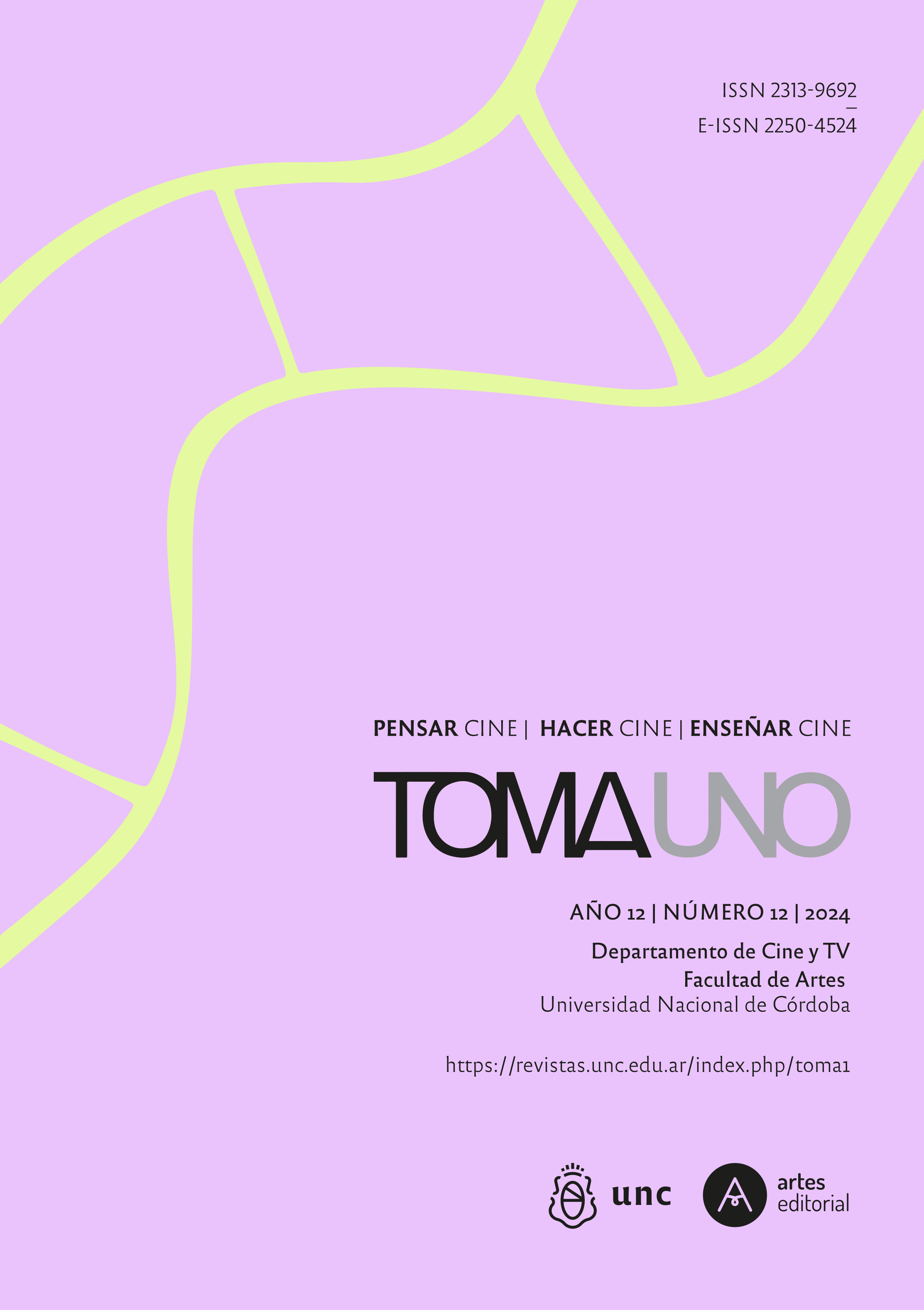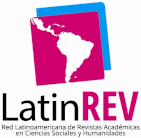Towards an epistemology of the lesbian closet as disruption in Susana’s Blaustein Muñoz film Susana
DOI:
https://doi.org/10.55442/tomauno.n12.2024.47088Keywords:
documentary, closet, lesbian, family archivesAbstract
This article proposes a formal analysis throughout the autobiographical documentary Susana (1980, 23') by Mendoza’s filmmaker Susana Blaustein Muñoz based on notions provided by lesbian, queer and feminist studies. We analyze Blaustein Muñoz's documentary mainly from the contributions of lesbian and queer theorists and activists based on the so-called affective turn. Kosofsky Sedgwick's contributions about the closet as the structure that defines gay oppression in this century, will be a sensitive key that will accompany the reading of the Argentine documentary pioneer as an experimental film that stages lesbian identities from the use of the first person in the eighties.
Downloads
References
Ahmed, S. (2019). La promesa de la felicidad. Una crítica cultural al imperativo de la alegría. Buenos Aires: Caja Negra editora.
Anzaldúa, G. y Moraga, C. (1981). This bridge called my back: Writings by radical women of color. New York: Kitchen Table/Women of Color Press.
Butler, J. (2010). Marcos de guerra. Las vidas lloradas. Buenos Aires: Paidós.
Clarke, C. (1983). Lesbianism: An Act of Resistance. En Ch. Moraga and G. Anzaldúa (Eds.), This Bridge Called My Back: Writings by Radical Women of Color (pp. 141–151). New York: Kitchen Table/Women of Color Press.
Combahee River Collective (2017). The Combahee River Collective Statement. Ciudad de México: Gato Negro Ediciones.
Freeman, E. (2010). Time binds: Queer temporalities, queer histories. Durham: Duke University Press.
Gorbman, C. (1983). Photographer's self-portrait. Jump Cut, 28, pp. 43-44.
Jay, K. (2000). Tales of the Lavender Menace: A Memoir of Liberation. New York: Basic Books.
Kosofsky Sedgwick, E. (1998). Epistemología del armario. Barcelona: Ediciones de la Tempestad.
Mayer, S. (2011). Cambiar el mundo film a film. En S. Mayer y E. Oroz (Eds.), Lo personal es político: feminismo y documental (pp. 12-41). Pamplona: Festival Punto de Vista-Gobierno de Navarra.
Morris, B. J. (2016). The Disappearing L: Erasure of Lesbian Spaces and Culture. Albany: SUNY Press.
Peralta, M. L. (2024, 10 de mayo). Es mucho más que un discurso de odio. Página 12. https://www.pagina12.com.ar/735494-es-mucho-mas-que-un-discurso-de-odio
Piedras, P. (2012). Las formas de la primera persona en el cine documental argentino contemporáneo [tesis doctoral inédita, Facultad de Filosofía y Letras, Universidad de Buenos Aires]. Argentina
Piedras, P. (2012). La regla y la excepción: figuraciones de la subjetividad autoral en documentales argentinos de los ochenta y noventa. TOMA UNO, 1, pp. 37-53. https://doi.org/10.55442/tomauno.n1.2012.8568
Piedras, P. (2014) El cine documental en primera persona. Buenos Aires: Paidós.
Rich, A. (1979). On lies, secrets and silence: Selected Prose 1966-1978. New York: WW Norton.
Stoller, N. E. (1997). Lessons from the Damned: Queers, Whores, and Junkies Respond to AIDS. London: Routledge.
Sullivan, M. (2022). Lesbian death: Desire and danger between feminist and queer. Minneapolis, London: University of Minnesota Press.
Filmografía
Blaustein Muñoz, S. (Dir.) (1980). Susana [cortometraje]. Argentina: Susana Blaustein Muñoz.
Costa Perdomo, R. (Dir.) (2010). Cuchillo de Palo [largometraje]. Paraguay-España: Estudi Playtime
Portillo, L. y Muñoz, S. (Dirs.) (1989). La Ofrenda: The Days of the Dead [largometraje]. Argentina: Lourdes Portillo.
Portillo, L. y Muñoz, S. (Dirs.) (1985). Las Madres: The Mothers of Plaza de Mayo [largometraje]. Argentina: First Run Features.
Downloads
Published
Issue
Section
License
Copyright (c) 2024 Agustina Gálligo WetzelThis work is licensed under Creative Commons Attribution-NonCommercial-NoDerivs 2.5 Argentina .


































